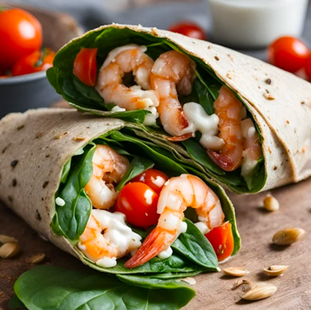If you’ve ever felt achey, bloated or just “off” without a clear reason, you’re not alone. As a Holistic GP, I often see patients who struggle with ongoing, low-grade inflammation—something that can impact your mood, energy levels and overall well-being. While there’s no one-size-fits-all solution, taking a closer look at the foods you eat can make a big difference. After all, what we put on our plate can be a powerful tool to help reduce inflammation, restore balance and get you feeling your best.
Why Does Inflammation Matter?
Inflammation is your body’s natural response to injury or infection—it’s how our immune system alerts us that something’s not quite right. But when it becomes chronic, inflammation can sneakily contribute to conditions like heart disease, joint pain, digestive issues and even mood disturbances. The good news? By choosing the right (and avoiding the wrong) foods, you can help dial back chronic inflammation and support your overall health.
1. Refined Sugars
If there’s one culprit to watch out for, it’s refined sugar. Sweet treats, fizzy drinks and packaged snacks often contain high levels of added sugar that can spike insulin levels, increase inflammation and leave you feeling sluggish. Cutting back on sugar doesn’t mean swearing off desserts forever. Try reaching for natural sweeteners like honey or enjoy a handful of fresh berries to satisfy that sweet tooth.
2. Processed and Red Meats
That juicy burger might taste great in the moment, but processed meats (think sausages, bacon and deli slices) and excess red meat can fuel the inflammatory fire. Instead, consider swapping them for lean, high-quality proteins like skinless poultry, oily fish rich in omega-3s (such as salmon and mackerel) or plant-based proteins like lentils and chickpeas.

3. Refined Carbohydrates
White bread, white pasta and other heavily refined grains have had their nutrients stripped away, leaving behind “empty” carbs that can lead to blood sugar spikes and inflammation. Opt for whole grains like brown rice, quinoa, oats and wholemeal bread. They’re packed with fiber, vitamins and minerals to keep your gut happy and steady your energy levels throughout the day.
4. Trans Fats and Highly Processed Oils
Not all fats are created equal. Trans fats (found in some margarines, fried fast foods and certain baked goods) have a bad rap for a reason—they’re known contributors to inflammation and heart disease. Even some highly processed vegetable oils (like corn or soybean oil) can tip the balance. Consider reaching for healthier fat sources like extra-virgin olive oil, avocado oil or flaxseed oil. These heart-friendly fats help keep inflammation in check and support overall well-being.
5. Excess Alcohol
A glass of red wine now and then can be part of a healthy lifestyle, but too much alcohol can quickly work against your body’s natural balance. High alcohol intake has been linked to increased inflammation and other health concerns. Aim for moderation: if you do drink, stick to recommended guidelines and hydrate with plenty of water.
6. Artificial Sweeteners and Additives
While they might seem like a calorie-free quick fix, certain artificial sweeteners and additives can irritate the gut and drive inflammation. Instead of turning to “diet” foods, focus on whole, minimally processed options. Your taste buds (and gut) will thank you over time.
Taking the First Step: A Holistic Approach
At The Holistic GP clinic I encourage a holistic approach to wellness—meaning I don’t just look at your symptoms; I consider your entire lifestyle. By paying attention to the foods you eat, you can help reduce chronic inflammation and lay a strong foundation for better health.
Simple Tips to Get Started:
Begin Slowly: Start by cutting back on one inflammatory food at a time. Small changes add up.
Add, Don’t Just Subtract: As you remove problem foods, add nutrient-dense whole foods—colorful veggies, lean proteins, healthy fats and whole grains.
Listen to Your Body: Notice how you feel after meals. Tuning in to bloating, fatigue or headaches can guide your next dietary steps.
Seek Professional Guidance: Need more personalised advice? I can help you create a sustainable, anti-inflammatory eating plan tailored to your unique needs.
The Bottom Line
Reducing inflammation isn’t about perfection—it’s about making informed, gradual changes that support your body’s natural healing abilities. By steering clear of highly processed foods, refined sugars, trans fats and certain additives, you’re already on the right track. And remember, at Holistic GP Clinic, I’m here to help you find the right balance, answer your questions and guide you toward a healthier, happier, more vibrant life.
Ready to take the next step on your anti-inflammatory journey? Feel free to reach out and let’s work together on achieving your best health—one bite at a time.







